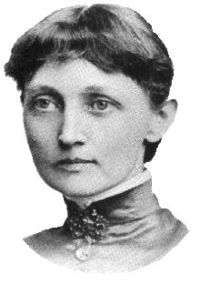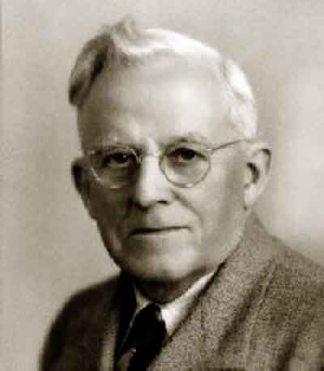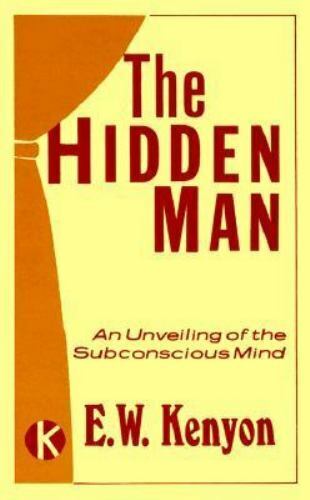Dangerous Teachings In Church
Founder of The Metaphysical Movement

Emma Curtis Hopkins (1849-1925)
Metaphysical Science
Hopkins College
Known Quotes
“Many will tell of how wonderfully they have been led by repeating the name of Jesus Christ. There was never any other character in history who gave orders to keep repeating his name.”
“If you can redden your face with a thought, you can straighten your crooked bones with a thought.”
“The only thing worth working for is a right state of mind. Say positively, “I do not believe it takes hard work to succeed in Gods universe.””
“Let me tell you the twelve effects of thinking of the Spirit: You will have life, health, strength, support, defense, thinking faculty, wise speech, ability to record well your ideas, joyous song, skill in carrying out your principles, beauty of judgment, and great love.”
Emma Curtis Hopkins was influenced by Mary Baker Eddy, the founder of Christian Science, in several ways. She facilitated the development of New Thought in America.
First, Emma Curtis Hopkins was a student of Mary Baker Eddy and studied under her for a brief period of time in the late 1800s. During this time, Hopkins learned the principles of Christian Science and incorporated them into her own teachings.
Second, Emma Curtis Hopkins was deeply influenced by Mary Baker Eddy’s emphasis on the power of thought and the importance of spiritual healing. Hopkins went on to develop her own system of metaphysical healing, which was based on the idea that individuals could transform their lives by changing their thoughts.
Finally, Emma Curtis Hopkins was influenced by Mary Baker Eddy’s emphasis on the power of individual consciousness and the importance of personal spiritual growth. Hopkins believed that individuals had the power to tap into their own innate spiritual potential and achieve a higher state of consciousness through the practice of metaphysical principles.
She was heavily influenced by Mary Baker Eddy’s teachings on Christian Science, spiritual healing, and the power of individual consciousness. While Hopkins developed her own system of metaphysical teachings, her work was deeply rooted in the principles she learned from Eddy.
Hopkins was a highly influential spiritual teacher and metaphysical thinker in the late 19th and early 20th centuries. She had a significant impact on many preachers and spiritual leaders of her time, as well as on the development of the New Thought movement.
Some of the preachers and spiritual leaders who were influenced by Emma Curtis Hopkins include:
- Ernest Holmes, the founder of Religious Science and the author of “The Science of Mind”
- Essek William Kenyon, founder and president of Bethel Bible Institute
- Myrtle Fillmore, co-founder of Unity Church and author of “How to Let God Help You”
- Charles Fillmore, co-founder of Unity Church and author of “The Revealing Word”
These individuals were all part of the New Thought movement, which was a spiritual and philosophical movement that emphasized the power of positive thinking and the interconnectedness of all things. Emma Curtis Hopkins played a significant role in the development of this movement and her ideas continue to influence spiritual and metaphysical thinkers today.
Influenced by
Marry Baker Eddy, Phineas Parkhurst Quimby
Preachers Inspired By New Thought, Christian Science , And The Metaphysical Movement

Essek William Kenyon (1867-1948)
Pastor of New Covenant Baptist ChurchBethel Bible Institute


Kenyon was a prolific author and speaker who wrote extensively on topics such as divine healing, faith, and spiritual transformation. His teachings emphasized the power of the spoken word and the importance of faith in achieving spiritual transformation. Some scholars have noted that Kenyon’s teachings bear striking similarities to those of Emma Curtis Hopkins and other New Thought leaders. In particular, Kenyon’s emphasis on the power of positive thinking and the spoken word to create a new reality echoes Hopkins’ teachings on the power of thought and affirmation.
Known Quotes
“Disease and sickness are settled because God said that He had settled them. He bore the diseases. God said, “By His stripes ye were healed” so that ends the discussion. He said the issue was closed. The diseases have been put away, so sickness and disease shall not lord it over you.” Jesus The Healer
“There is no sickness problem. There is simply a problem of the believer’s coming to know his inheritance in Christ.”
God made Him(Jesus) sick with our sickness. He was afflicted with our diseases. As to our sins, “He was wounded for our transgressions, He was bruised for our iniquities; the chastisement of our peace was upon Him; and with His stripes we are healed.” Jesus The Healer
Influenced by
Phineas Parkhurst Quimby (New Thought), Marry Baker Eddy (Christian Science), Emma Curtis Hopkins (Metaphysical Movement)
His Influence
William Branham 1909-1965 (Healing minister who influenced Oral Roberts, A.A. Allen)
John Osteen 1921-1999 (Founder of Lakewood Church)
T. L. Osborn 1923-2013 (Pentecostal Evangelist)
Kenneth E. Hagin 1917-2003 (Founded the Rhema Bible Training Center, was heavily influenced by Kenyon’s teachings and often referenced them in his own teachings on faith and divine healing.)
Preachers inspired by E.W. Kenyon with little education raise concerns about the accuracy of their teachings and their ability to minister effectively. Essek William Kenyon himself did not have formal theological education, but he became a prolific writer and speaker.
John Osteen began his ministry as a Southern Baptist pastor in the 1950s before founding Lakewood Church however he did not attend seminary or receive formal theological training. He graduated from high school and went on to attend college for a short time, but he did not complete his degree. William Branham became an influential preacher, known for his healing and prophetic ministry, he did not receive a formal education beyond elementary school. Kenneth E. Hagin became a preacher and teacher in the Pentecostal movement, known for his teachings on faith, healing, and the prosperity gospel. Hagin did not have a formal education beyond high school. He attended high school and later went on to study at a Bible school in Texas for a short time. However, he did not complete his studies and did not attend seminary or receive formal theological training.
When it comes to preachers with limited formal education, few are self-taught with the original language. John Bunyan, the author of “The Pilgrim’s Progress” was one preacher and another was Charles Spurgeon. Spurgeon gained extensive knowledge of the Bible and had ability to read the original Greek and Hebrew texts, he wrote numerous commentaries and works on the Bible.
E.W. Kenyon’s writing may show some basic understanding of the original Greek text but it is not known to what extent. While Kenneth E. Hagin, William Branham, and T.L. Osborn were also preachers with limited formal education, they were not particularly known for their understanding in Greek or for writing extensive commentaries on the Bible. They focused more on learning the teachings from the movements of their times which appeared in their writings and went on to inspire many preachers today.
Created 2015/08/03 | Updated 2023
Church Listing
- What is the church’s statement of faith?
- Which church confession does the church hold to?
- Are the views of the pastor/church complementarian or egalitarian?
- Is the church structure led by one CEO pastor or a plurality of pastors?
- Does the pastor preach topically, expository, or both?
- As a pastor, which Christian authors have had the biggest impact on your life, beliefs, and ministry?